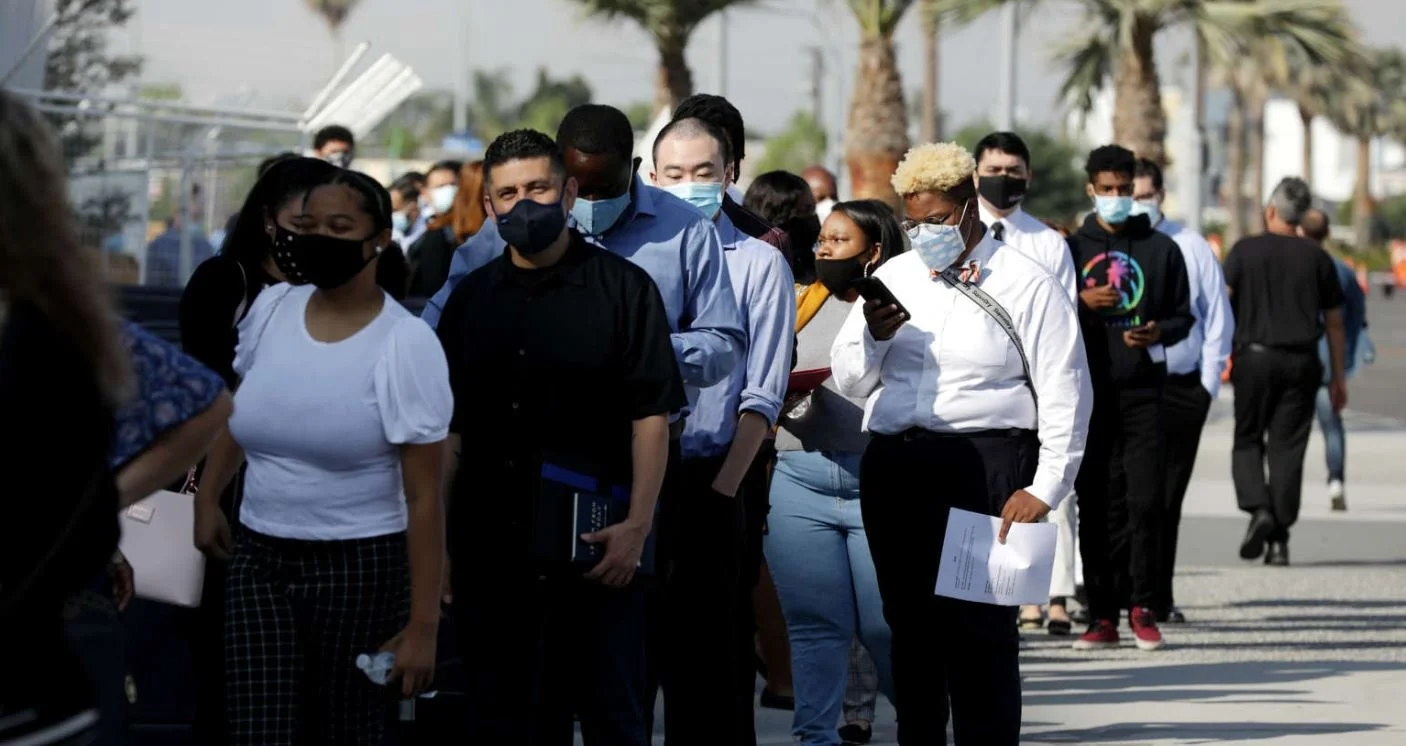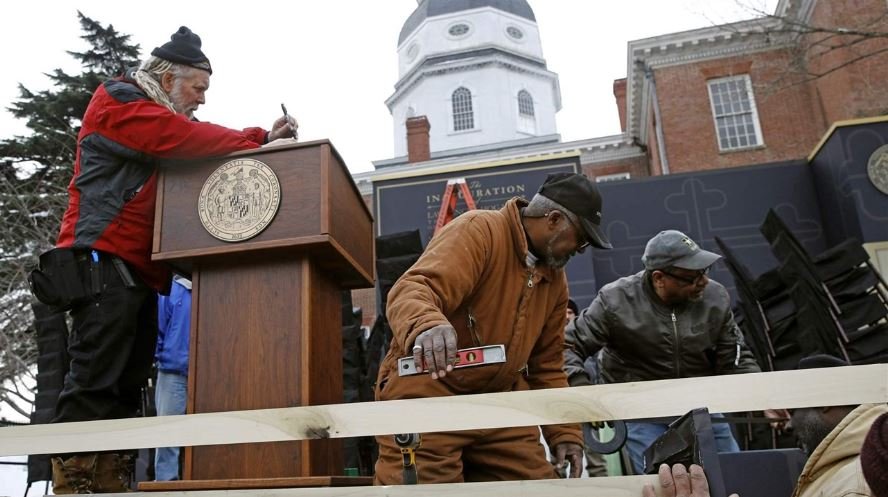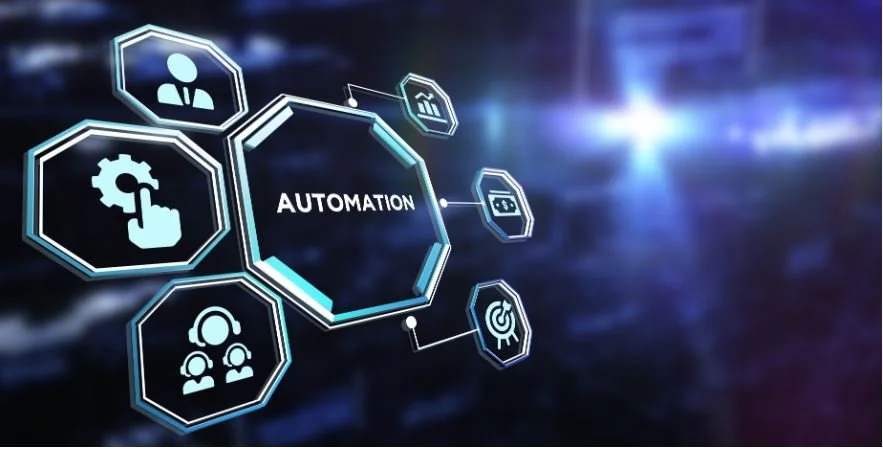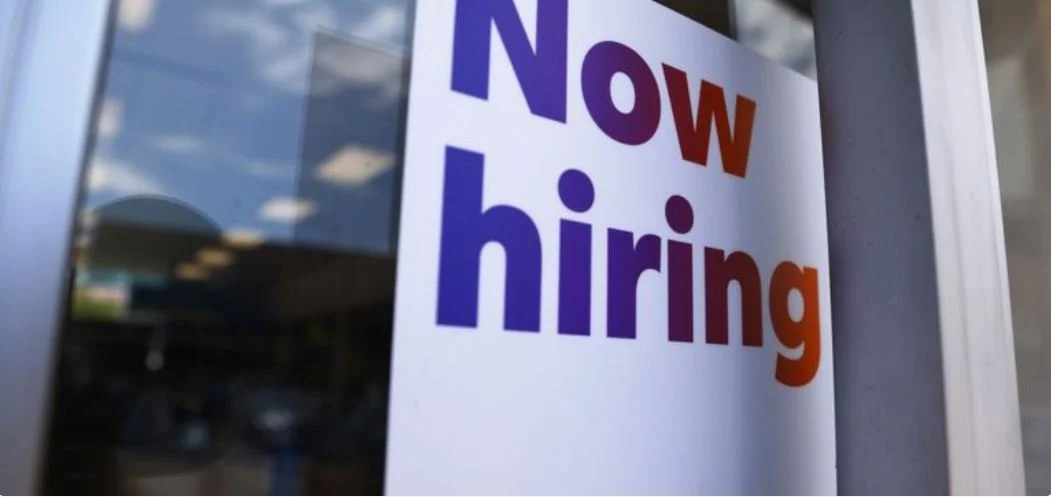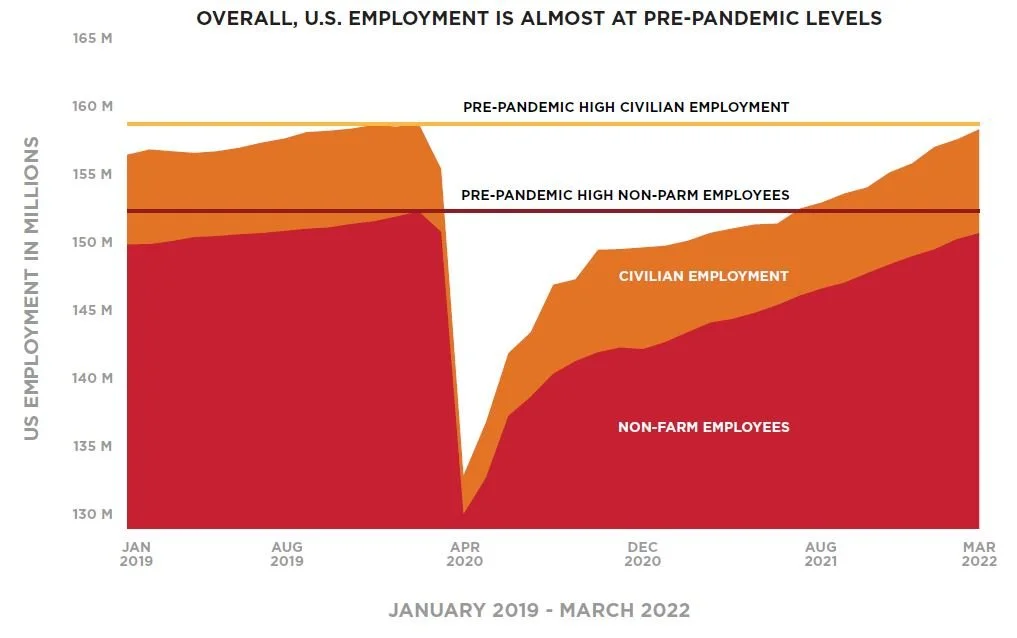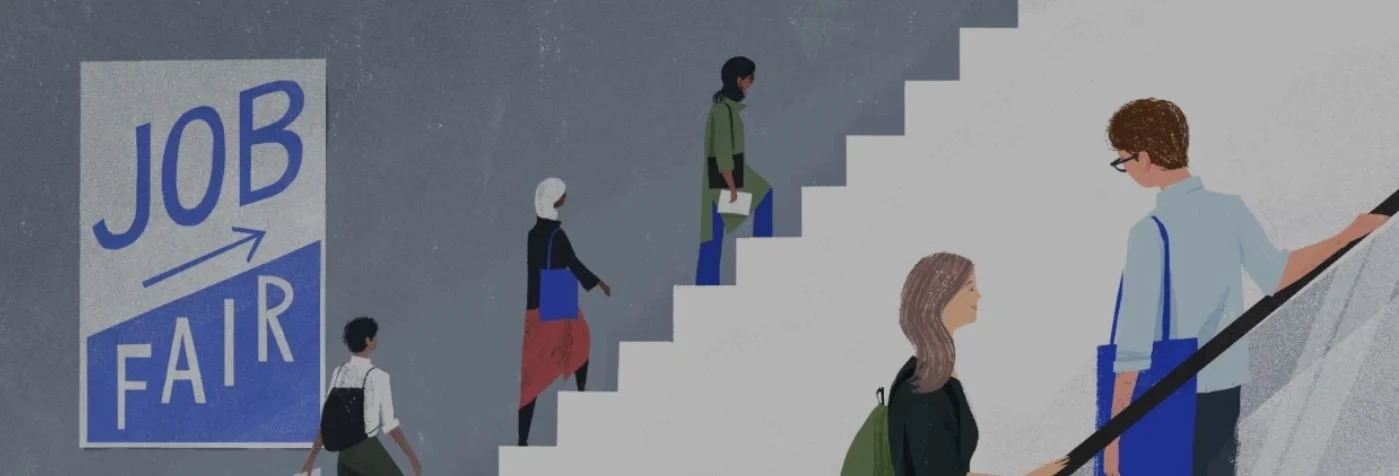News
Articles and op-eds featuring Burning Glass Institute research
Featured Articles
TRUTHOUT: 75% of New Jobs Require a Degree While Only 40% of Potential Applicants Have One
75% of New Jobs Require a Degree While Only 40% of Potential Applicants Have One
By David Trend
August 7, 2022
In recent years, amid college admissions scams and student debt, a new debate is emerging around higher education. An increasing number of people are questioning the “paper ceiling” — the barrier for skilled job seekers who lack a bachelor’s degree. The education press is calling this an ontological threat in that it questions the existence and value of college itself, while accusing the system of perpetuating multiple forms of inequity. Of course, higher education often has found itself a political football in the past. What makes this time different is its critique of functions universities typically have seen as their strength: providing skills for employment and meaning for life.
Everyone knows it’s been a tough few years for higher education. With enrollments dropping during the pandemic at a pace not seen for half a century, concurrent changes in the U.S. workplace have rendered college degrees unnecessary for a growing number of high-wage jobs. Yet many employers require four-year credentials anyway, in what some observers see as an antiquated habit and a cover for discrimination.
The numbers are deceptively simple: 75 percent of new jobs insist on a bachelor’s degree, while only 40 percent of potential applicants have one…
GOBankingRates: Is the Latest Jobs Report Signaling a More Aggressive Fed Hike?
Is the Latest Jobs Report Signaling a More Aggressive Fed Hike?
By Yaёl Bizouati-Kennedy
August 8, 2022
The U.S. added 528,000 jobs in July, largely beating estimates, and unemployment was at 3.5%, the Bureau of Labor Statistics (BLS) reported last week. The blowout report is reigniting several economists’ views that the Federal Reserve might move more aggressively at its next meeting in September.
Rusty Vanneman, Chief Investment Strategist at Orion Advisor Solutions, told GOBankingRates that the job report was impressive, especially considering the recent rise in jobless claims, announced layoffs at giants such as Amazon and Walmart, and the recent drop in job openings. He summed it up by saying that it “felt like the expected number of 250,000 was going to be too high”…
Forbes: How EdTech Firms Are Bringing Higher Education To The Metaverse
How EdTech Firms Are Bringing Higher Education To The Metaverse
Remote learning might’ve gotten a bad rap during the pandemic, but education is about to move into the metaverse. And, experts say, it will be better than in-person instruction.
The costs of higher education have been growing, racking up more debt for students, and the post-college economic returns have been flattening. But learning has never been more important, especially in an era of rapid technological and growing automation.
Unfortunately, traditional higher educational institutions are not equipped to handle the scale of the challenge. “The class of institutions we need going forward isn’t fully fleshed out yet,” said Michael Crow, president of Arizona State University. “Redesigning research universities will require innovative institutional models that creatively use learning technologies to cooperate rather than compete with other universities, and forming strategic partnerships that include business and industry and government agencies,” Crow said…
The Washington Post: More workers without degrees are landing jobs. Will it last?
More workers without degrees are landing jobs. Will it last?
The increasing availability of good jobs for those without degrees coincides with challenges for traditional higher education
By Lawrence Lanahan
Troy Groom, of Hyattsville, Md., was browsing social media this spring when he read something that made him perk up: Gov. Larry Hogan (R) announced in March that the state government would strip bachelor’s degree requirements from thousands of job listings.
Groom had left Bowie State University when his first daughter was born. That daughter now has a college diploma. Groom still does not. But he had gained experience and credentials: a two-decade rise in retail and a suite of computer networking certificates that led him to three years of information technology contracting gigs…
PEW: This State Will Hire You—No College Degree Required
June 23, 2022
By: Elaine S. Povich
With record numbers of state jobs going unfilled since the height of the COVID-19 pandemic, Maryland was in a bind. So, officials decided to eliminate the four-year degree requirement for thousands of those jobs—from parole agents to information technology specialists to nursing assistants—becoming the first state to do so.
In the current tight labor market, Maryland is not the only state engaged in a desperate search for government employees. Unemployment remains low, and there are millions more job openings in both the public and private sectors than there are workers to fill them.
Some private companies already have scaled back education requirements in the race to attract employees. It makes sense for states and other public sector employers to do the same, according to Harvard Business School economics professor Joseph Fuller, who has studied the trend…
FORBES: 3 Ways To Tackle Hiring’s Mammoth Bias Problem
June 30, 2022
Laura Thompson and Krysta Sadowski
The shift toward skills-based hiring is part and parcel of improving racial equity in the workplace, but even the most well-intentioned hiring initiatives can fall flat if bias is not addressed.
The skills-based hiring movement is growing. A Burning Glass Institute analysis of more than 51 million job posts found that employers removed degree requirements for nearly half of middle-skills roles and more than one-third of high-skills roles between 2017 and 2019. And federal, state and private sector employers appear poised to accelerate this trend. This shift is partly driven by the call for improved diversity, equity and inclusion (DEI) outcomes in the workforce and the recognition of skills-based hiring as a conduit for advancing racial and economic equity.
But as companies work to make this shift, we’re noticing a risk: Skills-based hiring efforts could fall flat if HR teams do not also invest in addressing the ways in which bias can impact hiring processes…
AEI: Harnessing the Best of Automation While Minimizing the Downside Risks
American Enterprise Institute
By John P. Bailey
The pandemic and economic disruptions have accelerated the adoption of automation technologies that will introduce important benefits to businesses and consumers but may also create disruptions for many workers and communities. Policymakers and leaders can take steps now to help navigate these disruptive changes…
HR Dive: Despite ‘skills-based’ hiring push, employers overlook nontraditional candidates
HR Dive
Despite ‘skills-based’ hiring push, employers overlook nontraditional candidates
Recruiting tools and processes may fail to consider workers without a four-year degree, panelists said during a June 28 joint EEOC and OFCCP webinar.
Ryan Golden
Senior Reporter
Despite signs that employers are willing to prioritize skills over educational attainment when recruiting, candidates with nontraditional work backgrounds continue to be overlooked, according to panelists at a virtual event hosted Tuesday by the U.S. Equal Employment Opportunity Commission and Office of Federal Contract Compliance Programs.
A general trend over the past 20 years has seen businesses employ four-year degree requirements in their job descriptions, narrowing the field of potential candidates despite “hundreds of thousands of people” performing such jobs without a Bachelor’s degree…
AXIOS: America's New Labor Market
AXIOS
June 6, 2022
America’s New Labor Market
More warehouse workers, fewer waiters. More health store employees, fewer in public schools: the overall job market is nearly back to full strength, but it looks strikingly different.
Why it matters: Pandemic-era disruptions have shaken up the composition of the labor force — with big implications for how industries will have to adjust to a longer-term worker shortfall…
USA TODAY: US Economy on Brink of Recovering Pre-COVID-19 Job Numbers, but More Than Half of Industries Lag
US economy on brink of recovering pre-COVID-19 job numbers, but more than half of industries lag
The U.S. is on pace to recover all 22 million jobs wiped out in the COVID-19 recession as early as July, but the milestone will obscure sharp differences among industries and an economy transformed by the crisis.
Industries that have thrived during a pandemic that has kept Americans working and playing at home for long stretches – such as e-commerce, technology and professional services – already have reached or topped their pre-COVID-19 payrolls…
New Burning Glass Institute Report: Jobs Numbers Hide Significant Shifts in the Economy
New Burning Glass Institute Report: Jobs Numbers Hide Significant Shifts in the Economy
One in six U.S. industries have not recovered from a jobs decline of 10% or more post-pandemic
PHILADELPHIA, May 10, 2022 – The April jobs report shows that the post-pandemic recovery continues at pace, with the economy having add 428,000 jobs. But as The Burning Glass Institute’s latest report The Through-the-Looking-Glass Recovery illustrates, behind those growing numbers is the sobering fact that nearly one in six U.S. industries have not recovered from a jobs decline of 10% or more.
CNN Business Opinion: Spending on consumer goods will likely plummet in the second half of the year
With the fear of Covid-19 on the wane, consumers are spending much more on in-person services, like travel and entertainment, powering an impressive comeback in that sector. However, something has got to give. And that something is consumer spending on goods, like clothing, furniture, appliances and recreational equipment, which is in for a rough second half of 2022.
The Chronicle of Higher Education: The Uneven Climb From College to Career
Ask students why they go to college, and they cite one reason more often than any other: To get a better job.
Yet students’ chances of landing that good job after graduation aren’t created equal. Low-income students, students of color, and those who are the first in their families to go to college often have a tougher time finding a first job out of college and earn less than their more privileged peers.
Ellucian and The Burning Glass Institute to Collaborate on Data-Driven Insights to Inform Student Success
Ellucian and The Burning Glass Institute to Collaborate on Data-Driven Insights to Inform Student Success
World-class research and data analytics will enable higher education leaders to improve equitable student outcomes
The New York Times: A 4-Year Degree Isn’t Quite the Job Requirement It Used to Be
New research finds companies are starting to rely less on the college filter in hiring. But it remains an obstacle to opportunity for many.
As a middle school student in New York, Shekinah Griffith saw a television news report of President Barack Obama visiting an innovative school in Brooklyn. Its program included high school, an associate degree in a technical subject, an internship and the promise of a good job.
FORTUNE: These bipartisan solutions can help ease America’s labor crisis
For a nation yearning to rise above partisan rancor, 2022 brings great opportunity for consensus in advancing the mobility and skills of the American worker.
Progressives and conservatives, unions and industrialists, foreign policy hawks, and isolationists can all find common cause in the need for building a more competitive, skilled, and mobile U.S. workforce.
CNN Business: The labor shortage could lead to a recession next year
Over the past 12 months, US consumer prices rose by 7.5%, the highest rate in nearly 40 years. Worse, inflation is showing no signs of slowing.
The Federal Reserve typically fights inflation by raising interest rates, which slows the economy by reducing the demand for goods and services. Ideally, the rate increases are sufficient to slow inflation without leading to a recession. But the problem is that the Fed cannot precisely control the rate of economic growth. So with the central bank expected to raise rates next month, barring a major impact on the US economy from the war in Europe, the question remains: Can the Fed contain inflation without triggering a recession?
While we probably won't see a downturn this year, a recession next year is becoming increasingly likely, for a number of reasons.
Sacramento News & Review: Working together for better jobs, brighter future
California’s local workforce boards and a Sacramento-based nonprofit help people find good-paying jobs—and solve bigger social problems at the same time
Matching a local worker with a local business seems straightforward enough. But this seemingly simple act has ripple effects that can change an individual’s life, build a family’s generational wealth, and help end historical inequities. It can also impact the regional and state economy as more workers—and more business owners—choose to stay here.
Burning Glass Institute Launches to Track a Fast-Changing Labor Market
Burning Glass Institute Launches to Track a Fast-Changing Labor Market
Real-Time Labor Analytics Pioneer Matt Sigelman Creates New Nonprofit Advancing Research & Practice on Mobility, Opportunity & Equity
Working Nation Podcast: Work Green, Earn Green
Institute President Matt Sigelman discusses what makes a job green.

